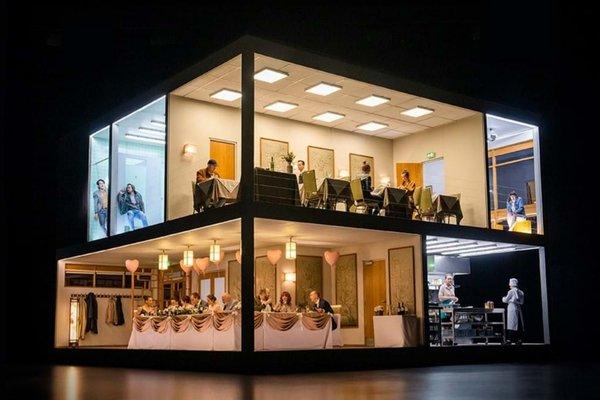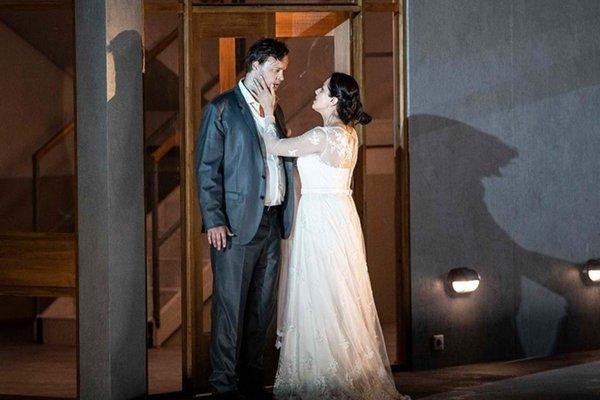'Innocence', the final opera by one of this century’s most acclaimed composers, Finnish spectralist Kaija Saariaho, is a cinematic thriller unlike anything you will ever see or hear again. With its international cast, multilingual libretto and two-story, rotating and ever-transforming set, 'Innocence' transfixes and boggles the mind.
Finnish composer Kaija Saariaho, who died in June 2023, spent her career living in Paris, France; the home of spectralism. Spectralism is a form of composition devised in the early 1970s which utilises sonographic representations and mathematical analysis of sound spectra. This is a long way of saying don’t expect to hear any of 'Innocence'’s compositions on a pasta commercial, or to be humming them on the way out. This wouldn’t be appropriate, anyway, as 'Innocence' is a tragedy, told using narrative techniques of the finest modern cinema: flashbacks, trickles of revelations, plot twists, sub-plots and a head-spinning conclusion.
The libretto is loosely based on the Finnish Raumanmeri school shooting in 1989: a student who claimed he was bullied by fellow students used his father’s gun to kill, but was too young to face consequences. ‘Innocence' is set partly in the past, in the bloodstained school hallways, and partially in the aftermath, at the shooter’s brother’s wedding. The conflict: the wedding’s waitress is the mother of a victim, and the bride is unaware of the truth.

Image © Tristram Kenton
To aid the telling of a story which jumps between the past and the present constantly, set designer Chloe Lamford has devised a masterpiece. To say the set design, and the small army of backstage crew who transform it – from swanky restaurants to blood-smeared classrooms – are the stars, is not to diminish the contributions of the outstanding cast of singers, the always-impressive Adelaide Symphony Orchestra, or the renowned Saariaho. It’s just that without the set, nothing else would work the way it does.
Director Simon Stone utilises the structure exquisitely; there are moments where grieving mother Tereza, played by Jenny Carlstedt, mirrors her dead daughter Markéta (Erika Hammarberg), who stands a storey above her; mother is in hell of grief while her daughter is an angel above. Carlstedt and Hammarberg, alongside mother-in-law Patricia (Claire de Sévigné) and the Priest (Teddy Tahu-Rhodes) are the vocal standouts. Hammarberg gets the sweetest melodies, inspired by Finnish folk tunes.
At a time where debate in Australia rages regarding youth crime and the age of criminal responsibility, 'Innocence' is an exploration of the social determinants of crime, and how binaries of guilty and not guilty rarely adequately capture the realities of life.
★★★★★

